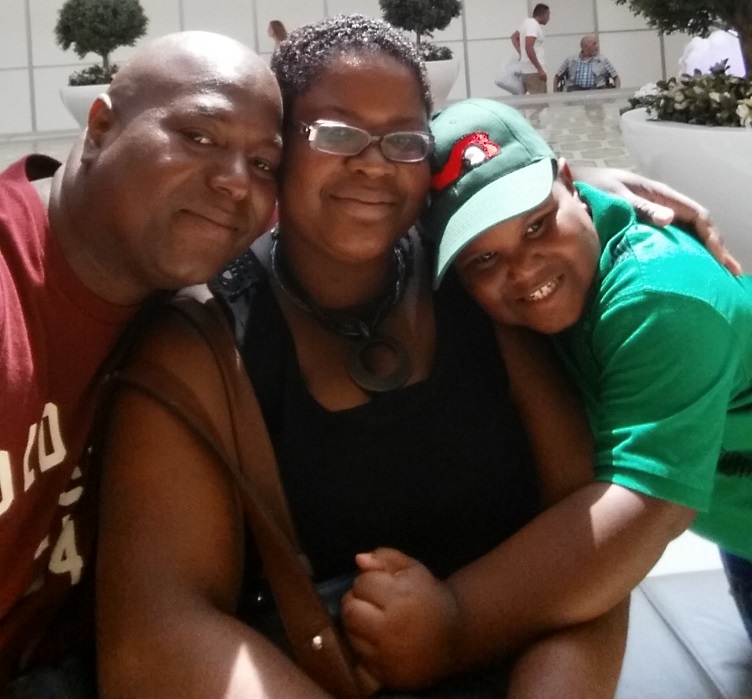Growing up in Jamaica, Germaine Lovelace was a typical teen boy—filled with hormones, angst and rebellion. The Morovian church to which his family belonged had a punitive approach to youthfulness. The punishment he was given only increased the angst. He went off course in his mid-teens, dealing dope to the rich kids at school, and partaking himself.
That’s when a six-foot-seven-inch Scottish lady, an administrator at the school, called him into her office. They talked about the football at which he excelled on the pitch, and her favourite team, ManU. She invited him to come to her Presbyterian church that Sunday. She picked him up at the bus stop, two more Scottish ladies in the car with her.
He got involved in that church. He cleaned himself up. He went back to his home church and got involved there. While seeking post-secondary education he became even more involved in the Morovian church. He felt a calling to the ministry. He met a girl.
He was a pastor at a church where he didn’t take a holiday for two years. Feeling burned out, he told his congregation he needed some time off. Someone offered him a month in Southern Ontario. He went to Niagara Falls a few times.
At another crisis in his life, now married with a young boy, he thought of the two churches with which he’d been associated, the Morovian and the Presbyterian. That’s how he ended up at St. Andrew’s Hall, Vancouver, with $4,000 in his pocket.
As that money quickly evaporated, a short-term position opened up 2,500 kilometres away. The family of three had a great summer serving First, Kenora, Ont. After they returned to Vancouver for Lovelace to finish his studies, the struggling Kenora congregation got a financial boost from a planned gift. They called Lovelace.
His banker wife also got a great job offer in Kenora. Off they went in the dead of winter.
Forty-below is hard on locals punishing on newcomers. The Lovelaces were three of only six black people in Kenora. It was hard and depressing. Plus the nearest Presbyterian clergy person was hundreds of kilometres away. It was lonely. Husband and wife talked of getting out, cutting their losses.
Just then, an emissary from the Renewal Fellowship showed up on his annual Encouragement Road Trip. Rev. Germaine Lovelace poured his heart out to Rev. Fred Stewart. At the end of the visit, Lovelace felt a renewed energy to continue his Kenora ministry. That was two years ago; he’s still there.
Talk to Lovelace and he’ll tell you this story; and he’ll underline each moment, and there are more than reported here, when God nudged him, sent him an angel, corrected him.
And if you haven’t got the point, let me repeat it: There’s a Jamaican-born minister reviving a once-struggling congregation in northern Ontario. In mid-October this year, First ordained new elders. There are children in the church again.
Somehow God picked this family in rural Jamaica and guided them to rural Canada.
Or as they say in Malawi: God is good. All the time.
Have confidence in God. Have confidence in what God is doing. A God who nudged First, Kenora, back from life support. There were dark days along the way, for the Lovelace family and for the Kenora church. Not all things made sense all the time.
We churchy people say with our mouths that we do not know the will of God. But apparently we do—we know exactly who God would bless, know exactly who and what God would accept. We make lists of God’s intentions. And then we fight amongst ourselves, bitterly, to prove our god’s the superior. We have lost confidence in God.
We have lost confidence in our stories. We have lost confidence that Christ is amongst us. Theology is not our God. Tradition is not our God. The Bible is not our God. They are mere tools that help us know God.
God is God. And God is good.
All the time. The hand of God continues to guide us. The work of the church never ends; our ministries, personal, communal, corporate, never end. In God’s care there are no endings, just continual rebirths.
And the God who gave us Germain Lovelace, and so many other remarkable rebirths we are unable to see because we are busy tossing our gods at each other, is here and present and stirring us to a new, strange future. We have to let God be God; honour the deaths, keep ourselves alive to the rebirths.
This is a time for boldness. A time for entrepreneurship, for risk taking (we have nothing left to lose). This is a time for vulnerability and honesty. This is a time to cash in the building and take church to the streets. This is the time to listen to the voice of God—it is not a whisper. It is calling us from all around. We just can’t hear it with our earmuffs on inside our echo chambers.
And … I would like to believe the Presbyterian Church in Canada is perfectly situated to be the denomination that can best ride this radical change in all that was once comfortable. It is small enough to mobilize, has solid roots and a few extra pennies (albeit buried away; if we can use ‘em for pensions, we can use ‘em for Christ’s mission). It needs fearless leadership, which I think it has in place more than we realize or are willing to admit, from local congregations, national offices and the colleges. And it needs entrepreneurial energy. That’s a thing we’ve misplaced in our trauma.
Jesus loves us, this we know, because God loved us first. Have confidence.







